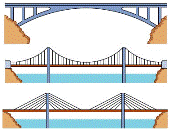Civil and Environmental Engineering, Department of

Department of Civil and Environmental Engineering: Faculty Publications
Document Type
Article
Date of this Version
9-3-2012
Citation
Int. j. water sci., 2012, Vol 1, 2:2012 1-12
Abstract
Membrane fouling has a strong negative impact on the efficiency of reverse osmosis membranes in seawater desalination. Although reports indicate that water abstracted by beach sand filtration systems on the Mediterranean and Red Seas leads to less membrane fouling compared to direct seawater intakes, only limited information can be found on the efficiency of such systems in removing biodegradable dissolved organic carbon (BDOC), an important fouling agent.
This article describes different designs of beach sand filtration systems. In order to investigate the reduction during beach sand filtration of parameters relevant to membrane fouling, such as total organic carbon (TOC), turbidity and total nitrogen, column experiments have been carried out using natural and wastewater spiked seawater with coral beach sand from Hawaii, USA at low and high infiltration rates. Additionally, operational results from existing beach sand filtration sites were collected and supplemented with data from a field site visit of the Dahab beach well desalination plant, Egypt. Preliminary results show good reduction of the targeted parameters and indicate that beach sand filtration would be a valuable pre-filtration step in RO-based drinking water production systems.


Comments
© 2012 Bartak et al.; licensee InTech. This is an open access article distributed under the terms of the Creative Commons Attribution License (http://creativecommons.org/licenses/by/3.0)